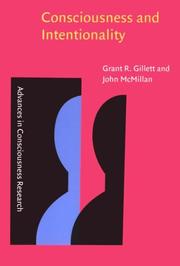| Listing 1 - 10 of 16 | << page >> |
Sort by
|

ISBN: 0393323714 9780393323719 Year: 2003 Publisher: New York (N.Y.): Norton,
Abstract | Keywords | Export | Availability | Bookmark
 Loading...
Loading...Choose an application
- Reference Manager
- EndNote
- RefWorks (Direct export to RefWorks)

ISBN: 0195108035 0195074300 0195074033 9780195074307 9780195074031 9780195108033 Year: 1992 Publisher: New York (N.Y.) : Oxford university press,
Abstract | Keywords | Export | Availability | Bookmark
 Loading...
Loading...Choose an application
- Reference Manager
- EndNote
- RefWorks (Direct export to RefWorks)
Decision Making --- Game theory --- Management --- Management games --- 519.83 --- 519.816 --- 658.012 --- 518.5 --- Deciding --- Decision (Psychology) --- Decision analysis --- Decision processes --- Making decisions --- Management decisions --- Business games --- Industrial gaming --- Industrial management games --- Games of strategy (Mathematics) --- Management. Directorate. Technique and methods of management --- Theory of decision-making --- Planning in het bedrijf --- Operationeel onderzoek. Speltheorie --- Decision making. --- Game theory. --- Management games. --- Jazz musicians --- 519.83 Theory of games --- 65.012.4 Management. Directorate. Technique and methods of management --- 519.816 Theory of decision-making --- Decision making --- 65.012.4 --- Choice (Psychology) --- Problem solving --- Industrial management --- Administration --- Industrial relations --- Organization --- Games, Theory of --- Theory of games --- Mathematical models --- Mathematics --- Simulation methods --- Planning (firm) --- Operational research. Game theory --- Management. --- Biography --- Industrial management. --- Théorie des jeux. --- Prise de décision. --- Jeux d'entreprise. --- Gestion d'entreprise.

ISBN: 3718602776 9783718602773 Year: 1986 Volume: 1 Publisher: Chur, Switzerland: Harwood,
Abstract | Keywords | Export | Availability | Bookmark
 Loading...
Loading...Choose an application
- Reference Manager
- EndNote
- RefWorks (Direct export to RefWorks)
Foreign trade policy --- -Games, Theory of --- Game theory --- International economic relations --- 330.105 --- 339.92 --- Games, Theory of --- Theory of games --- Mathematical models --- Mathematics --- 330.105 Wiskundige economie. Wiskundige methoden in de economie --- Wiskundige economie. Wiskundige methoden in de economie --- 339.92 Economische samenwerking en integratie. Tolunie --- Economische samenwerking en integratie. Tolunie --- Game theory. --- Mathematical models. --- Relations économiques internationales --- Théorie des jeux --- Modèles mathématiques --- International economic relations - Mathematical models
Book
ISBN: 0199603758 0192557645 0191862886 0192557637 9780191862885 9780192557636 9780199603756 Year: 2018 Publisher: Oxford
Abstract | Keywords | Export | Availability | Bookmark
 Loading...
Loading...Choose an application
- Reference Manager
- EndNote
- RefWorks (Direct export to RefWorks)
This text explains how you actually go about doing good bioethics. John McMillan develops an account of the nature of bioethics; he reveals how a number of methodological spectres have obstructed bioethics; and then he shows how moral reason can be brought to bear upon practical issues via an 'empirical, Socratic' approach.
Bioethics. --- Biology --- Biomedical ethics --- Life sciences --- Life sciences ethics --- Science --- Moral and ethical aspects
Book
ISBN: 9780199603756 Year: 2018 Publisher: Oxford Oxford University Press
Abstract | Keywords | Export | Availability | Bookmark
 Loading...
Loading...Choose an application
- Reference Manager
- EndNote
- RefWorks (Direct export to RefWorks)
Book
ISBN: 9780199551637 Year: 2010 Publisher: Oxford Oxford university press
Abstract | Keywords | Export | Availability | Bookmark
 Loading...
Loading...Choose an application
- Reference Manager
- EndNote
- RefWorks (Direct export to RefWorks)
"Psychopaths have emotional impairments that can be expressed in persistent criminal behavior. UK and US law has traditionally excused disordered individuals for their crimes citing these emotional impairments as a cause for their criminal behaviour. The discussion of whether psychopaths are morally responsible for their behaviour has long taken place in the realm of philosophy. However, in recent years, this has moved into scientific and psychiatric investigation, fundamentally so with the development of Robert Hare's diagnostic tool, the Psychopathy Checklist. Responsibility and Psychopathy explores the moral responsibility of psychopaths. It engages with problems at the interface of law, psychiatry, and philosophy, and is divided into three parts providing relevant interdisciplinary background information to address this main problem. The first part discusses the public policy and legal responses to psychopathy. It offers an introduction to the central practical issue of how public policy should respond to psychopathy, giving insights for those arguing about the responsibility of psychopaths. The second part introduces recent scientific advancements in the classification, description, and explanation of psychopathy. In particular, Robert Hare illustrates and defends his Psychopathy Checklist (PCL). Surveys of the most recent brain imaging studies on psychopaths and the prospects for treatment are also included. The third part of the volume includes chapters covering the most significant dimensions of philosophical debate on the moral and criminal responsibility of psychopaths. In relation to this issue, philosophers have considered whether psychopathic offenders possess moral understanding and/or are capable of controlling their criminal behaviour. This part illustrates how answering these questions involves investigating highly debated and central philosophical problems. These difficulties concern the nature of moral understanding, the significance of emotive and cognitive faculties in moral understanding and motivation, and the most appropriate account of moral and criminal responsibility that can justify a response to the psychopathic offenders. Exploring one of the most contentious topics of our time, this book is fascinating reading for psychiatrists, philosophers, criminologists, and lawyers"--
Antisocial personality disorders --- Psychopaths --- Legal status, laws, etc
Book
ISBN: 1009076175 1009084402 1009084607 9781009084406 9781009084604 9781009076173 Year: 2024 Publisher: Cambridge : Cambridge University Press,
Abstract | Keywords | Export | Availability | Bookmark
 Loading...
Loading...Choose an application
- Reference Manager
- EndNote
- RefWorks (Direct export to RefWorks)
This Element offers a framework for exploring the methodological challenges of neuroethics. The aim is to provide a roadmap for the methodological assumptions, and related pitfalls, involved in the interdisciplinary investigation of the ethical and legal implications of neuroscientific research and technology. It illustrates these points via the debate about the ethical and legal responsibility of psychopaths. Argument and the conceptual analysis of normative concepts such as 'personhood' or 'human agency' is central to neuroethics. This Element discusses different approaches to establishing norms and principles that regulate the practices addressed by neuroethics and that involve the use of such concepts. How to characterize the psychological features central to neuroethics, such as autonomy, consent, moral understanding, moral motivation, and control is a methodological challenge. In addition, there are epistemic challenges when determining the validity of neuroscientific evidence.
Neurosciences --- Memory --- Medical ethics. --- Moral and ethical aspects.

ISBN: 9027251479 155619997X 9786612163944 1282163949 9027299870 9789027299871 9781556199974 9781282163942 6612163941 Year: 2001 Volume: 27 Publisher: Amsterdam Benjamins
Abstract | Keywords | Export | Availability | Bookmark
 Loading...
Loading...Choose an application
- Reference Manager
- EndNote
- RefWorks (Direct export to RefWorks)
Is there an internal relationship between consciousness and intentionality? Can mental content be described in such a way so as to avoid dualism? What is the influence of social context upon consciousness, conceptions of self and mental content?This book considers questions such as these and argues for a conception of consciousness, mental content and intentionality that is anti-Cartesian in its major tenets. Focusing upon the rule governed nature of concepts and the grounding of the rules for concept use in the practical world, intentional consciousness emerges as a phenomena that depends upon social context. Given that dependence, the authors consider and set aside attempts to reduce human consciousness and intentionality to phenomena explicable at biological or neuroscientific levels. (Series A).
Cognitive psychology --- Theory of knowledge --- Consciousness. --- Intentionality (Philosophy) --- Conscience --- Intentionnalité (Philosophie) --- Consciousness --- Motivation --- Thinking --- Social Perception --- Psychophysiology --- Mental Processes --- Behavior and Behavior Mechanisms --- Emotional Intelligence --- Perception --- Cognition --- Intelligence --- Personality
Book
ISBN: 3030824543 3030824535 Year: 2022 Publisher: Cham : Springer International Publishing : Imprint: Springer,
Abstract | Keywords | Export | Availability | Bookmark
 Loading...
Loading...Choose an application
- Reference Manager
- EndNote
- RefWorks (Direct export to RefWorks)
This book explains the ethical and conceptual tensions in the use of psychopathy in different countries, including America, Canada, the UK, Croatia, Australia, and New Zealand. It offers an extensive critical analysis of how psychopathy functions within institutional and social contexts. Inside, readers will find innovative interdisciplinary analysis, written by leading international experts. The chapters explore how different countries have used this diagnosis. A central concern is whether psychopathy is a mental disorder, and this has a bearing upon whether it should be used. The book’s case studies will help readers understand the problems associated with psychopathy. Academics and students working in the philosophy of psychiatry, bioethics, and moral psychology will find it a valuable resource. In addition, it will also appeal to mental health professionals working in forensic settings, psychologists with an interest in the ethical implications of the use of psychopathy as a construct and particularly those with a research interest in it.
Philosophy of mind. --- Science --- Philosophy. --- Mind, Philosophy of --- Mind, Theory of --- Theory of mind --- Philosophy --- Cognitive science --- Metaphysics --- Philosophical anthropology --- Normal science --- Philosophy of science --- Psychiatry. --- Ethics. --- Social sciences. --- Humanities. --- Moral Philosophy and Applied Ethics. --- Humanities and Social Sciences. --- Philosophy of Science. --- Philosophy of Mind. --- Learning and scholarship --- Classical education --- Behavioral sciences --- Human sciences --- Sciences, Social --- Social science --- Social studies --- Civilization --- Deontology --- Ethics, Primitive --- Ethology --- Moral philosophy --- Morality --- Morals --- Philosophy, Moral --- Science, Moral --- Values --- Medicine and psychology --- Mental health --- Psychology, Pathological --- Trastorns de la personalitat antisocial --- Psicòpates
Book
Year: 2002 Publisher: [Reston, Va.?] : U.S. Dept. of the Interior, U.S. Geological Survey,
Abstract | Keywords | Export | Availability | Bookmark
 Loading...
Loading...Choose an application
- Reference Manager
- EndNote
- RefWorks (Direct export to RefWorks)
| Listing 1 - 10 of 16 | << page >> |
Sort by
|

 Search
Search Feedback
Feedback About UniCat
About UniCat  Help
Help News
News